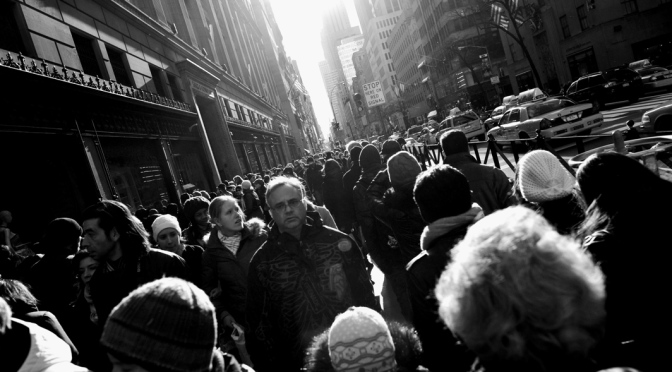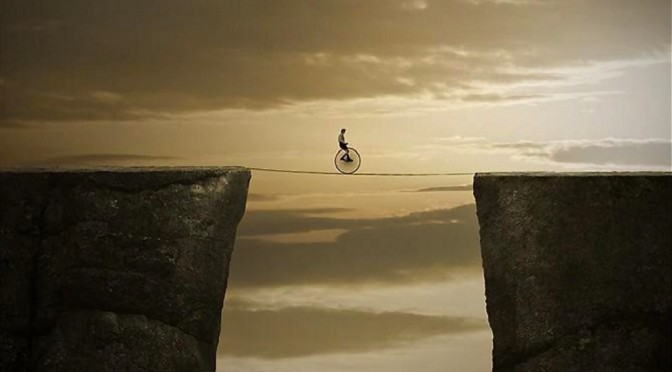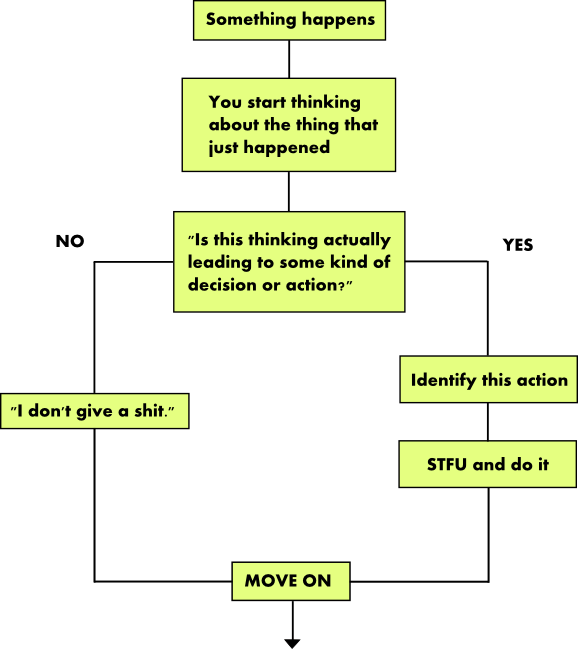By
David Cain of Raptitude.com
Here’s a depressing reality that everyone eventually notices: time goes faster as you age. The days and years seem to get behind you with increasing speed, and it’s easy to understand why: to a one-year-old, a year is a lifetime, while to a 40-year-old it’s only one-fortieth of a lifetime.
This means we are, essentially, accelerating towards our graves — but there’s something we can do to make this a non-issue, and I’ll explain how.
I turned 34 last week, and when I think about that number, it seems to belong to an entirely different stage of life than 33 does. A 33 year-old is just a 31 year-old you haven’t checked in on for a bit, and a 31 year-old is just a 29 year-old plus a quick pair of summers, and 29 is what everyone wants to be anyway.
But 34 is the mark at which the rounding begins to go the other way. We know that 34 might as well be 35, and one president later you’re 39, which is the same as 40. And at that point, while you’re nowhere near old age, you’re probably on the leeward side of the mountain of time that is your life, and your days of being a young person are over.
All of this is just a pointless thinking exercise though. It doesn’t mean anything. Numbers make fools of us. That’s why retail prices still end in 99, statistics mislead us relatively easily, and the Monty Hall Problem still blows people’s minds.
When I put the numbers aside, and look at my actual experience of aging, life has gotten consistently better, not worse. I am calmer, happier, more confident, wiser. I get more enjoyment out of ordinary moments, I experience fewer crises and less fear. I have just as many problems more quickly. I find it easier to do hard things as I get older.
Yet it’s suggested repeatedly to us, that aging is something to be feared — that an older you is a worse you, and that any birthday beyond your 29th is a small tragedy.
I am also aware that I only turned 34 and not 64, and that I’ve barely begun to experience the effects of aging. But I have every reason to believe that all of the improving qualities listed above will continue to improve until I’m about dead.
There are tradeoffs of course. When I was five I could fall down and probably not hurt myself. I used to be able to drink Slurpees for lunch and not feel like crap afterward. My skin was clearer. And eventually I’ll probably experience joint pain and other goodies. But I believe that with age I will gain vastly more than I lose.
What do we really lose as we age? Why do we think it’s such a bad thing?
Well first of all, what we’re most afraid of isn’t aging, but the thing that happens when we’re done aging — and we often confuse the two. Death and aging aren’t really the same problem, and I don’t think it makes sense to worry that aging is bringing you closer to death. The fact that life ends has been a part of the deal from the beginning, and you knew that. And death, whenever it comes, will render all of the problems of aging irrelevant.
Your body will tend to get weaker over the decades. We know that. But it’s important to note that your level of fitness and physical ability has a lot more to do with how you spend your years than how many of them you’ve spent in total. I’m a total novice in the world of fitness, but I’m already in much better shape than I was at 25, and still there are 65-year-olds who can run circles around me, or even bench-press me a few dozen times. While it’s true that our limits for physical prowess do decrease as we age, not many of us live in such a way that we’re bumping up against these limits.
We do experience more age discrimination, which is obnoxious but not exactly insurmountable. It’s also not really a function of aging; it’s a consequence of living in a culture that overvalues youth. In other words, getting younger isn’t what’s required to overcome age discrimination. As we know, many cultures (past and present) revere age.
We do get less physically beautiful, at least in terms of raw biological sex appeal. I will certainly have less hair and more lines in 20 years. But even as you gain wrinkles, you can simultaneously become a more articulate, likeable and admirable person, if admiration is important to you. While the most superficial aspect of your beauty may wilt, you can cultivate charisma and appeal indefinitely in every other area. Even outward beauty can be preserved or improved over the medium-term, with an investment in fitness and health, if that’s still something you value.
For women there is a unique aging issue: the loss of the capacity to give birth to healthy children occurs relatively early in life, so beginning a biological family is one of the few things that might be regarded with a bit of urgency (again, if that’s something that’s important to you.)
I’m willing to accept the gradual fading of my physical qualities, knowing that I’m steadily becoming more learned, more easygoing, more skilled and more wise. I have no reason to believe I will lose any of those qualities from age alone, until I’m pretty close to the end.
Of course, getting better year after year requires an intention to get better year after year. Self-improvement doesn’t happen by accident. A lot of what age apparently “takes” from us — health, possibility, optimism, confidence, personal power — is really just what we’ve given up on voluntarily. If you make a standing priority of improving in the areas that matter to you, then your birthdays will come to mark increases in capability and skill, rather than atrophy and loss.
But if you tell yourself the fitness ship has sailed, then it has. Same goes for the dream-career ship, the traveling-the-world ship, and the write-a-great-novel ship. You didn’t miss them, you just stopped thinking of them as your ship.
I think what many people particularly feel they lose is possibility. The range of what you can do with your life seems to shrink as you become more entrenched in your current obligations.
I don’t think this is due to age, but rather the cultural norm of letting your habits stagnate once you hit 30, and the subsequent slipping from improvement mode into maintenance mode. If you’re 5 or 10 years into a career, it’s harder to switch to something better because it usually means taking a pay cut. We take on family and work obligations that can easily consume all of our energy, if self-improvement is allowed to slip off the list of non-negotiable priorities.
If you’re living life in maintenance mode, then you are losing a step when you age. If you’re just getting older without a focus on getting better, then the same things become harder.
The passage of time isn’t a problem to someone who’s determined to improve every important aspect of their life over time. You still experience some tradeoffs, but it’s easier to say goodbye to your smooth skin and Olympic aspirations when you know you’re moving towards greater wealth, wisdom, skill, personal freedom and equanimity.
If you have long-term goals, age creates some pretty excellent consolation prizes. For example, if you’ve got a goal of getting into marathon-shape and doubling your income in the next three years, is it really that bad when you do find yourself three years older?
Disease and physical breakdown are inevitabilities, but they can be slowed with a long-standing commitment to health. When they do eventually set in, they can be managed gracefully with wisdom and presence — if developing those qualities has been a part of your lifestyle.
What the self-improver is really creating is ease — long-term ease. Taking five years to transition to a career that doesn’t drive you nuts might be harder in the short term, and much, much easier in the long term. Working out is harder than skipping a workout, but beyond the hour it takes to do either, the first option creates much more ease in life.
The lifelong self-improver is always setting up life so that it delivers increasing dividends in ease and joy. If it’s just a matter of course for you to spend every year of your life building skill, wealth, and wisdom, then birthdays come to feel like “leveling up” instead of losing out.
David Cain of Raptitude.com
Photo Credit to Joe Del Tofu



